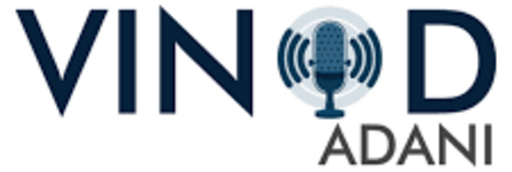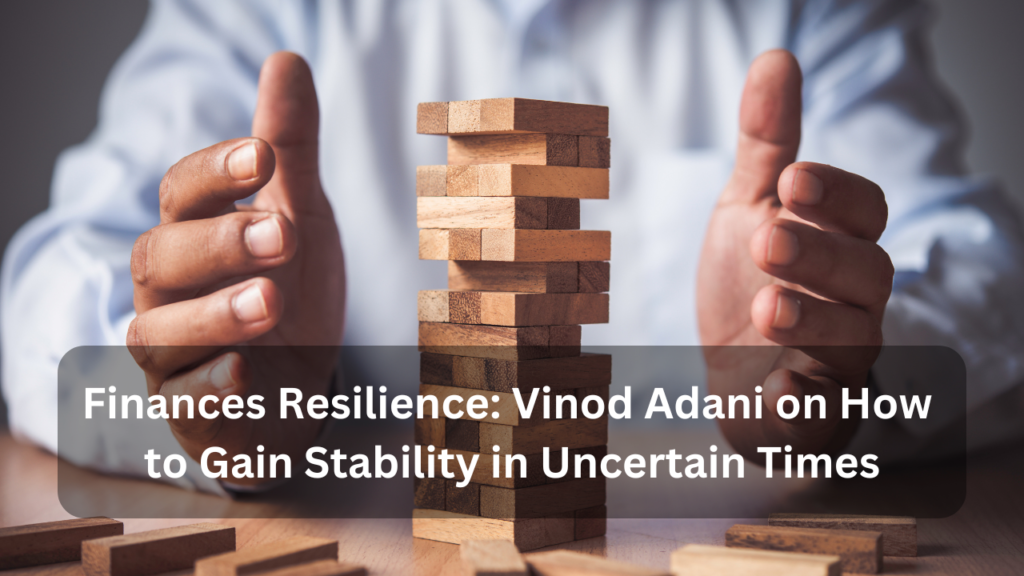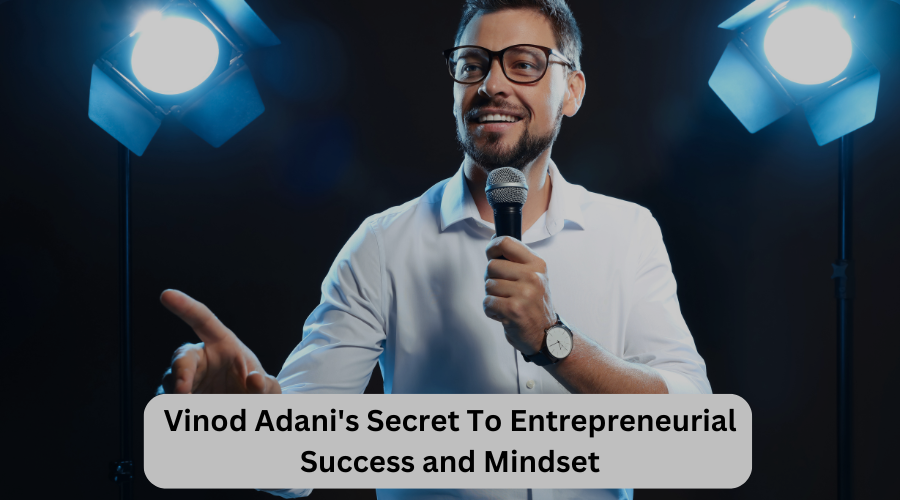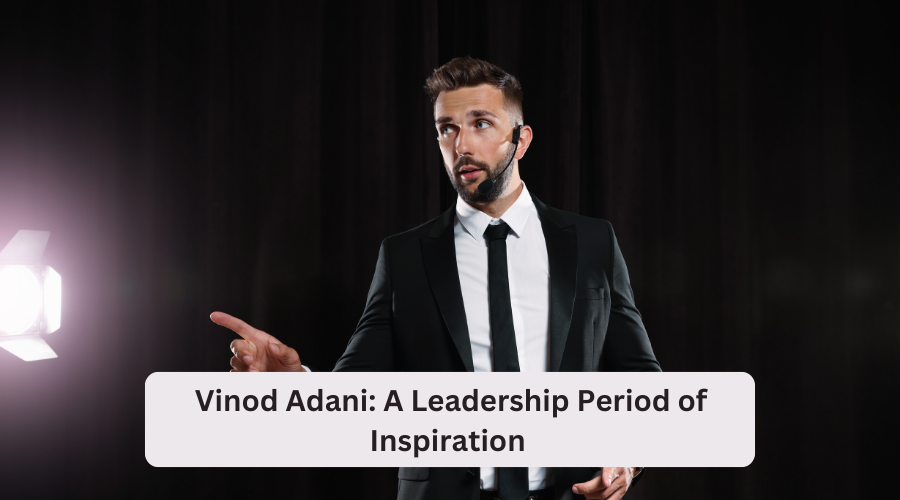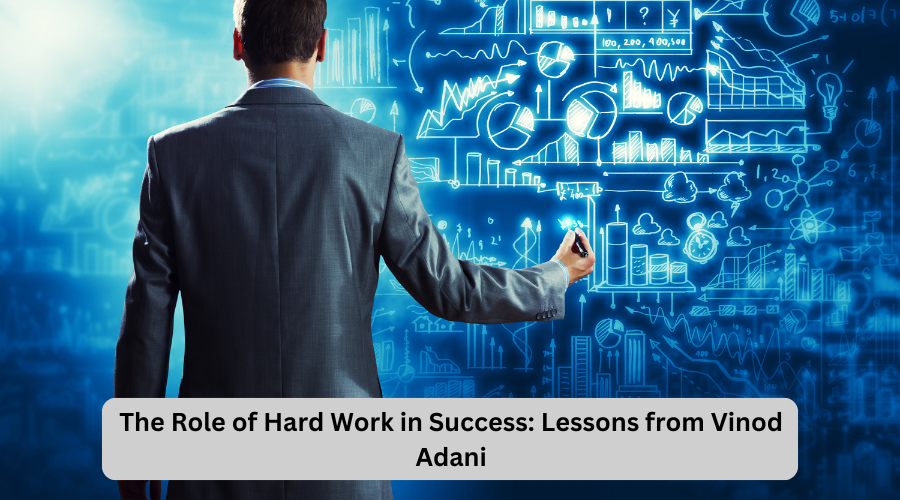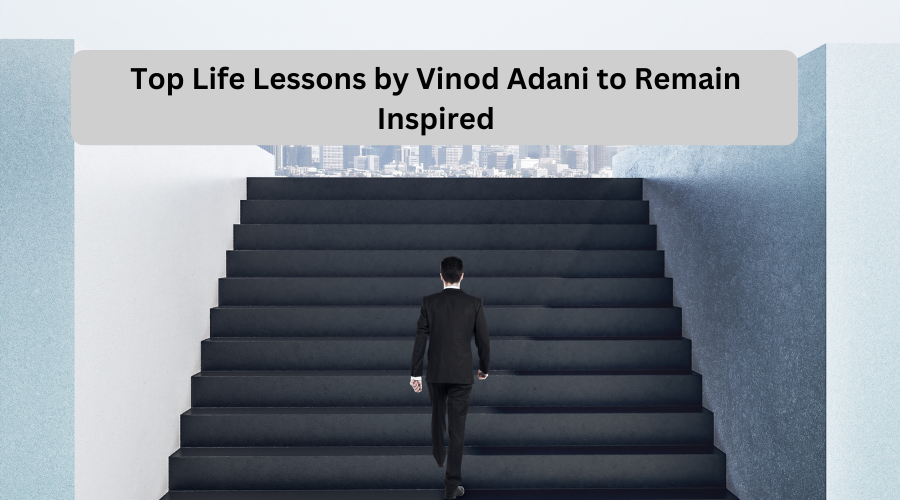In the rapidly changing world of today, financial resilience has thus become the hour of need not only for an individual but also for any business. Strong strategies become essential to ensure stability in times of economic uncertainties, global disturbances, and personal setbacks. Spanning years of experience and deep insight, renowned motivational speaker Vinod Adani has culminated practical advice to tackle financial unpredictability. Let’s find out some of the actionable tips by him to build financial resilience and establish safety through volatility.
Understanding Financial Resilience
Financial resilience is the ability to withstand and bounce back from economic adversities. It’s more than just having wealth-it’s a state of mind, preparation, and adjustment. According to Vinod Adani, becoming resilient financially involves practical money management coupled with a positive mental attitude. He points out that everyone, no matter how much in debt or what his or her financial condition happens to be, can alter their financial position with some effort.
Cultivate a Mindset of Stability
According to Vinod Adani, a stable mind is the first step to financial strength. He often says that emotional strength is as relevant as any financial planning. A calm mental attitude and focus during crises can also enable the person to make rational rather than impulsive decisions.
How to Have a Stable Mind?
- Education: Knowledge about economic trends is a good way to anticipate problems.
- Don’t Panic: Time should be taken before the implementation of big financial decisions.
- Support Positivity: Rather than dwelling on challenges, inspire the mindset of possibilities by generating creative solutions.
Formation of an Emergency Fund
According to Vinod Adani, an emergency fund is one of the most paramount pillars of financial resilience. An emergency fund can be assumed to be a cushion when experiencing unanticipated situations such as job loss, medical emergencies, or global economic shifts.
How to Establish an Emergency Fund?
- Set a Goal: Save at least 3-6 months’ worth of living expenses.
- Automate Savings: Save an amount from your earnings in a side account.
- Reduce Withdrawals: Treat the fund as a last resort in a bid to save it from being withdrawn.
Diversify Income Sources
Dependency on one single source of earning is very precarious especially in recession times. Vinod Adani advises diversification of revenue streams, thus minimizing dependency on one single source.
How to Diversify Income?
- Freelancing or Consulting: Provide your skill as a freelancer or consultant for side projects.
- Investments: Build a portfolio that earns passive income, whether it is through dividend or rental earnings.
- Start a Side Business: Find a hobby or passion and turn it into a profitable business.
According to Adani, diversified income not only provides one with financial stability but also offers new doorways and opportunities for growth and learning.
Intelligent Budgeting and Expense Management
“Financial resilience is built one step at a time,” says Vinod Adani, and wise budgeting is one of them. Budgeting enables you to track, control, and optimize your expenses so that money is spent in the right places.
Effective Budgeting Techniques
- Penny Prioritization: Spend money on essentials like housing, health, and education.
- Cutting Unessential Spending: Review costly subscriptions, instant buys, and pointless luxuries.
- Making Use Of Budgeting Tools: Use of applications and spreadsheets that would make keeping tabs on spending easy.
A disciplined budget frees up resources for saving, investing, and handling emergencies, thereby increasing long-term financial resilience.
Invest in Knowledge and Skill Development
In an uncertain world, malleability is the key. Vinod Adani advises people never to stop learning or upgrading themselves to remain relevant and competitive.
Steps to Invest in Yourself
- Courses: Learn new technologies, languages, or professional skills.
- Build Your Network: Develop connections that may lead to future career or business opportunities.
- Stay Informed: Be aware of the trends within your industry and ahead of all the emerging shifts in the market.
Investing in personal development can create avenues for higher income and better opportunities, strengthening financial resilience.
Obtain Insurance Against the Unexpected
This is often omitted but very crucial; Vinod Adani emphasizes adequate cover against the uncertainties of life.
Key Types of Insurance to Obtain:
- Health Insurance: Protects against medical costs and alleviates the financial impact of illness.
- Life Insurance: Provides certainty for family and loved ones during times of unexpected loss.
- Property Insurance: Protects homes and valuables from loss due to disasters or theft.
Having the right insurance means not having to draw down savings or borrow money in an emergency.
Adopt Financial Education
The lack of financial knowledge can lead to improper decision-making and missed opportunities. Vinod Adani is one who is promoting financial literacy for better savings, investment, and expenditure decisions.
Ways to Enhance Financial Literacy
- Read Books and Articles: Read works of financial experts where there is diversity of views.
- Attend Seminars: Subscribe to workshops or webinars held for personal finance.
- Consult Advisors: Approach qualified financial planners for more specific guidance.
Financial literacy equips the mind to manage money wisely and thereby helps reduce stress and build strength.
Long-Term Focus
Short-term blips are bound to come, but a long-term perspective helps keep the eye on the ball. Vinod Adani insists that well-defined financial goals must be set and followed during trying times as well.
Long-term Financial Planning Strategies
- Define Accomplishable Goals: Divide objectives into workable steps.
- Invest Steadily: Invest small portions of money periodically into savings and retirement accounts.
- Re-evaluate Plans Periodically: Update goals as events and priorities change. Patience and perseverance are key to attaining financial stability and resilience.
Debt Reduction and Overleveraging
Excessive debt can be a significant barrier to financial resilience, especially during a downturn in the economy. Vinod Adani states that high-interest debt should be paid first, and avoid overleveraging your assets.
Debt Management Ideas:
- Create a Repayment Plan: Focus on high interest loans first.
- Debt Consolidation: Combine all debts into one loan if possible, under one managed loan.
- Avoid Unnecessary Credit: Use credit responsibly and avoid overspending.
Manage debt in an efficient way that interest does not consume all the financial resources, leaving little to put aside for savings or investments.
Building Resilience in Community
Vinod Adani emphasizes developing good relationships in your network. A network of connections can provide emotional support, professional support and, in worst-case scenarios, monetary assistance when needed.
How to Build a Financially Resilient Community?
- Work with like-minded groups: Learn from one another based on experiences and advice.
- Participate in groups or forums: Share knowledge about financial literacy or investment groups.
- Giving back: Helping those in need strengthens community bonds and fosters goodwill.
A resilient community nourishes collective development while strengthening individual stability.
Conclusion: The Road to Financial Resilience
Building financial resilience is a journey. As Vinod Adani points out, it is something that requires constant effort, adaptability, and a positive attitude. It is possible to face any uncertainty with confidence by nurturing a stable mindset, safety nets, diverse sources of income, and continuous learning.
These steps form a roadmap to financial stability. People are able then to turn challenges into opportunities. And no matter how unpredictable things may seem today, embracing these principles will see people through more than just survival but achieving good success.
“Financial resilience is the bridge between challenges and opportunities,” Vinod Adani always says. With the right strategy and the right mindset, this bridge may lead them to a future of security, growth, and fulfillment.
